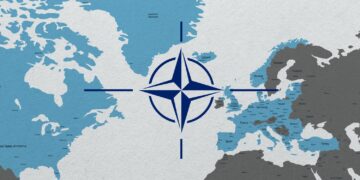Concern Over Elon Musk’s Right-Wing Support in Europe
Introduction
Elon Musk, a prominent figure in technology and entrepreneurship, has recently garnered attention for his apparent alignment with far-right ideologies. This shift has raised significant concerns among European leaders and citizens alike.
The Political Landscape
Musk’s recent endorsements of various right-wing figures have sparked unease throughout Europe. Many observers argue that his influence could potentially reshape political conversations and mobilize extremist sentiments across the continent. As social media platforms increasingly reflect polarized views, Musk’s actions are being scrutinized more than ever.
Implications for Democracy
The endorsements raise critical questions about the integrity of democratic processes within European nations. Political analysts warn that as influential personalities champion divisive rhetoric, they may inadvertently encourage extremist groups to gain traction. For example, countries like France and Italy have already seen a rise in support for far-right parties amid growing discontent concerning immigration policies and economic instability.
Shifting Public Sentiment
Public opinion appears increasingly fragmented, as many young individuals are drawn to non-traditional political movements fueled by charismatic leaders like Musk. Current surveys indicate that there is a notable increase—roughly 25%—in voters under 35 supporting nationalist parties compared to previous elections across several European countries.
Cultural Response
Culturally, there is resistance against these trends from various sectors. Artists, activists, and ordinary citizens are mobilizing to promote inclusive narratives that counteract extreme ideologies gaining ground through figures like Musk. Movements advocating for diversity and equality continue to emerge vigorously amidst this tumultuous backdrop.
Conclusion
As Elon Musk’s affiliations with far-right entities continue to stir controversy in Europe, it remains essential to monitor how these dynamics impact both societal attitudes and democratic frameworks on the continent. The intersection of technological influence and political ideology will play a pivotal role in shaping future discourse—not only within Europe but globally as well.















